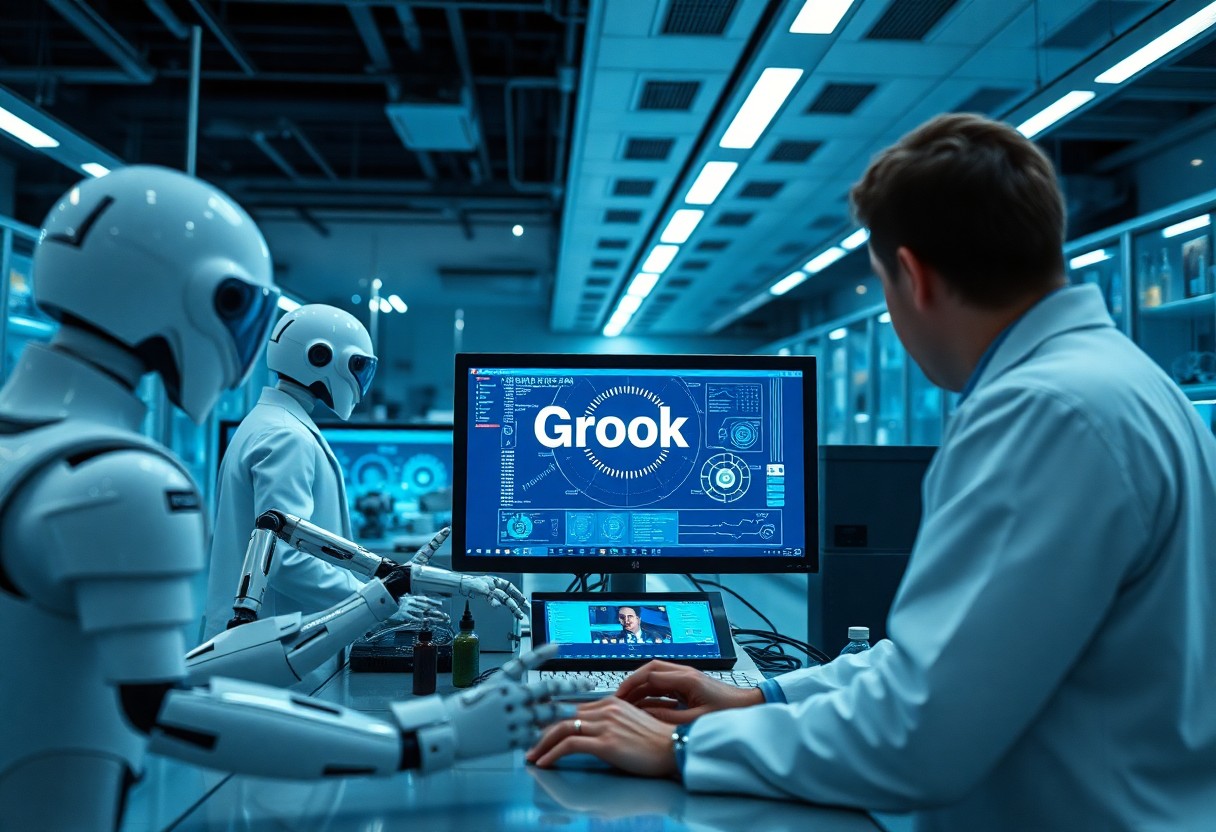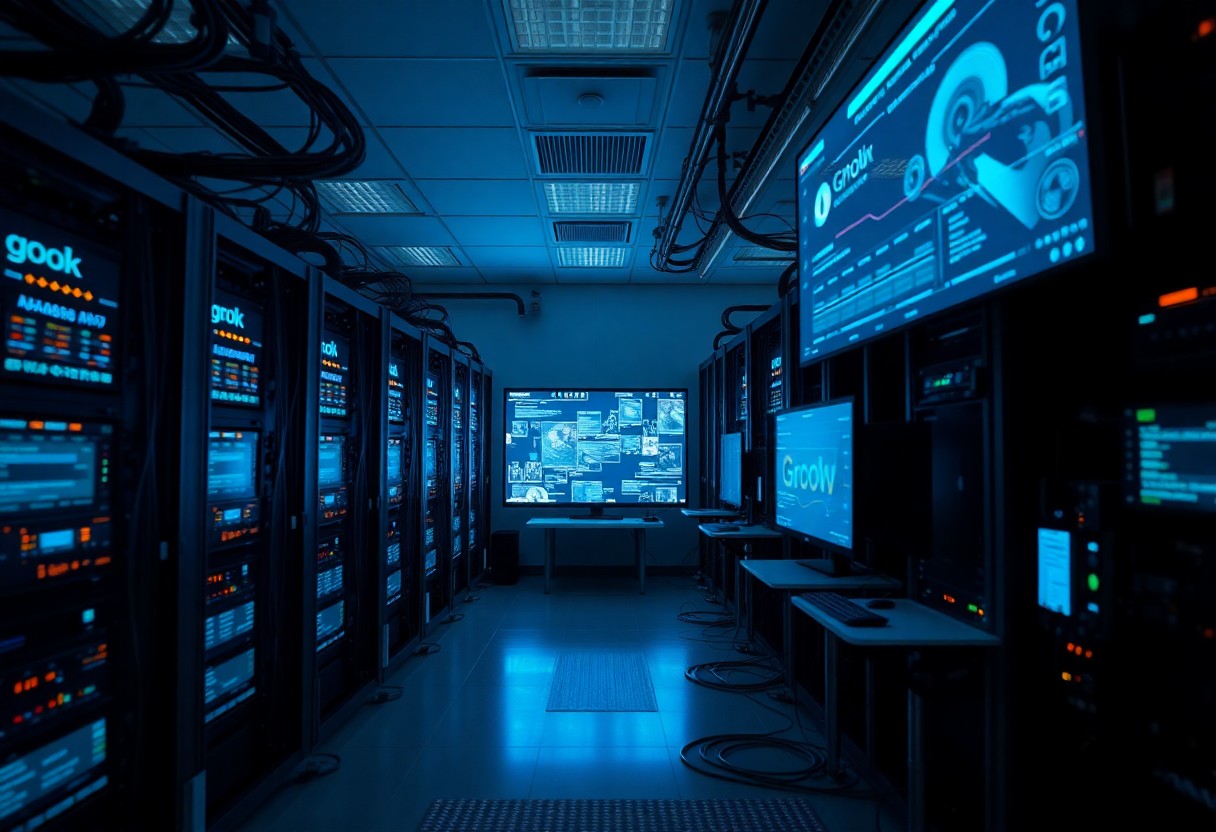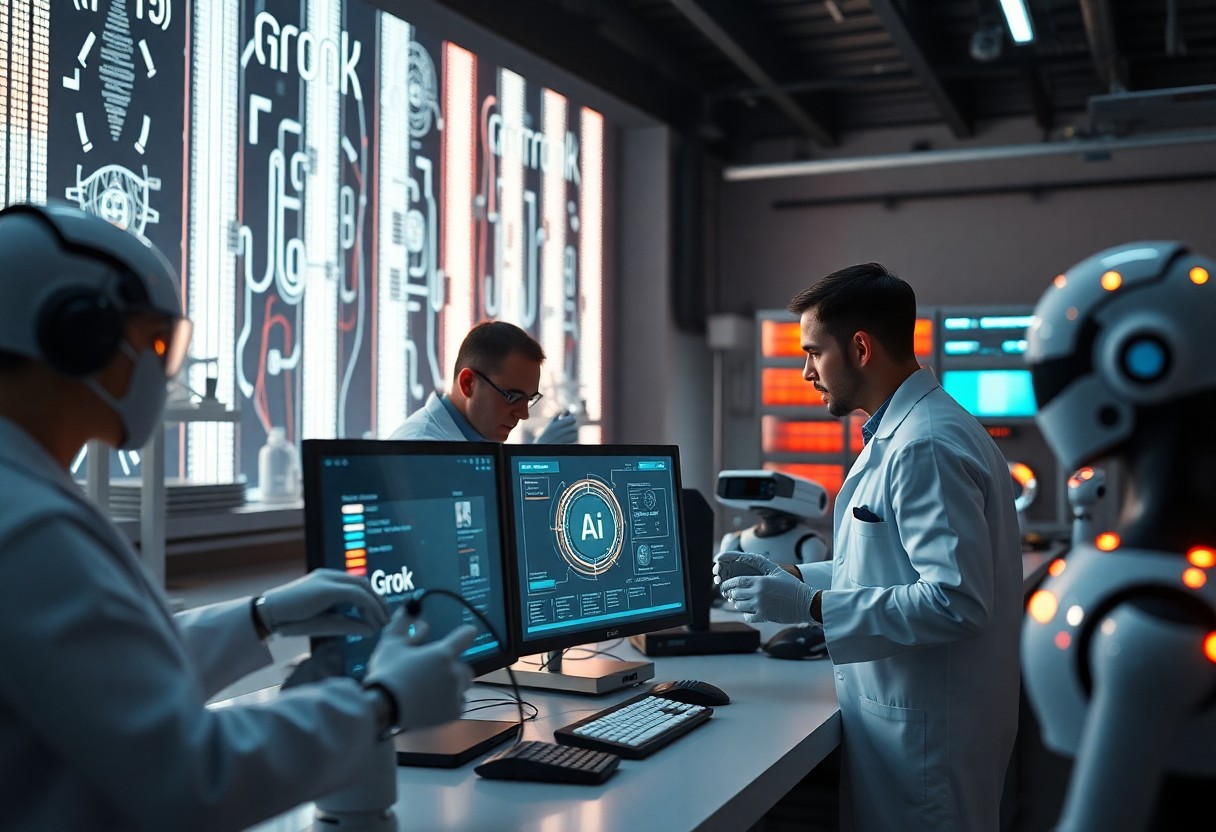Over the past few years, Grok has emerged as a transformative force in the development of intelligent agents within AI ecosystems. As you explore the capabilities of Grok, you’ll come to understand how it enhances the adaptive learning processes and decision-making skills of AI systems. This post will probe into the mechanisms that Grok employs to foster the growth and sophistication of these intelligent agents, empowering you to leverage this innovative technology in your own projects and initiatives.
The Concept of Grok: A Catalyst for AI Understanding
Grok represents a profound shift in how artificial intelligence interacts with data and learns from it, acting as a bridge that connects human-like understanding with machine intelligence. This synthesis allows AI to interpret nuances and complexities in data that previously eluded traditional algorithms, positioning Grok as a cornerstone in advancing intelligent agents within AI ecosystems.
Unpacking Grok: Definition and Implications
To grok means to intuitively understand something deeply and completely, encapsulating a holistic grasp that transcends mere data processing. In the context of AI, embracing this concept implies that systems can go beyond surface-level analysis, fostering an environment ripe for sophisticated decision-making and enhanced user experiences that closely mimic human cognition.
How Grok Facilitates Deep Learning in AI
Grok enhances deep learning processes by imbuing AI with a richer framework for understanding context and relationships within data. This approach allows algorithms to refine their learning paths, generating insights from multifaceted datasets that traditional methods might overlook. As a result, AI systems can adapt their strategies in real-time, significantly improving performance and accuracy.
Through Grok, deep learning is not just a computational exercise; it becomes an exploration of meaning within data. For instance, Grok lets AI analyze and categorize large volumes of information by recognizing patterns and interdependencies that would typically remain hidden. By facilitating a conversational interface with data, Grok encourages systems to continuously evolve and improve, leading to an unparalleled depth of understanding that can drastically enhance the effectiveness of intelligent agents in dynamic environments.

Intelligent Agents in AI Ecosystems: A New Paradigm
Your understanding of intelligent agents as part of AI ecosystems hinges on recognizing their innovative role as independent decision-makers. These agents operate within interconnected systems, adapting to changing environments and communicating with one another to fulfill complex tasks. The evolution of these agents reflects a departure from traditional models, allowing for more flexible, responsive operations that can enhance efficiency across various domains, from healthcare to finance.
Characteristics of Intelligent Agents
You will notice that intelligent agents exhibit key characteristics such as autonomy, adaptability, and social ability. Autonomy allows them to function independently based on their programming and environmental interactions, while adaptability ensures they can adjust their strategies in real-time. Their social ability enables them to communicate and collaborate effectively with other agents, enhancing the overall performance of the AI ecosystem.
The Interplay Between Grok and Intelligent Behavior
Grok’s integration into the development of intelligent agents has profound implications for how these agents exhibit intelligent behavior. By fostering deeper comprehension of data and situational context, Grok enhances the cognitive capabilities of agents, enabling them to make more informed decisions that mirror human-like reasoning.
The interplay between Grok and intelligent behavior reveals how agents can mimic human-like thinking patterns. This capacity for understanding complex data allows them to assess scenarios with greater nuance, leading to decisions rooted in deeper insights. For instance, in dynamic environments like smart cities, agents empowered by Grok can adaptively manage traffic patterns based on real-time user behavior, significantly improving urban mobility. Implementing Grok as a framework not only amplifies decision-making efficiency but also helps agents learn from past experiences, continuously evolving their intelligence in alignment with changing contexts and requirements. This reciprocal enhancement fuels innovation across the AI landscape, unlocking potential previously thought unattainable.
Grok’s Influence on Decision-Making Models for AI
In decision-making models, Grok facilitates enhanced understanding by enabling AI systems to process and analyze intricate data patterns effectively. This results in more accurate recommendations and actions tailored to specific circumstances. For example, Grok can help financial institutions predict market trends, leading to informed investment strategies and risk management decisions. By leveraging its ability to assimilate varied information streams, Grok boosts the capability of AI systems to navigate complex scenarios while minimizing human errors, ensuring that the resulting decisions are rooted in well-analyzed data.
Enhancing Predictive Analytics through Grok
Grok dramatically improves predictive analytics by harnessing extensive datasets, enabling AI models to unearth hidden correlations and trends. By utilizing these insights, businesses can make forecasts that resonate with real-time developments. For instance, enterprises in retail can predict consumer buying patterns more accurately during holiday seasons, adjusting stock levels and marketing strategies in response. This proactive approach ultimately enhances competitiveness in the dynamic market landscape.
The Role of Grok in Ethical Decision-Making Principles
Grok plays a significant part in shaping ethical decision-making frameworks for AI, providing a robust foundation for understanding the moral implications associated with various actions. By integrating ethical considerations into its analysis, Grok aids AI systems in recognizing potentially adverse outcomes and social consequences associated with their decisions. This transforms decision-making from mere data-driven choices into a holistic process that reflects human values and societal norms.
For instance, in sectors like healthcare, Grok can assist AI algorithms in weighing treatment options that benefit patients while adhering to ethical standards. It analyzes not only the effectiveness of a treatment but also evaluates possible side effects and long-term impacts on patient well-being. This means AI systems become more than just computational entities; they evolve into responsible agents capable of considering the ethical ramifications of their outputs. Grok’s application in these scenarios highlights the importance of embedding ethical frameworks into AI development and operation, making technology an ally in promoting societal well-being.

Practical Applications of Grok in Real-World Scenarios
Grok’s transformative capabilities extend far beyond theoretical frameworks, providing tangible benefits across various sectors. By refining how AI systems learn and adapt, Grok is being implemented in customer service for personalized interactions, in healthcare for predictive analytics, and in finance for risk assessment. These applications demonstrate the potential to optimize operations, enhance user experiences, and drive innovation, thereby transforming the very fabric of how businesses operate.
Industries Transforming Through Grok-Enabled AI
Various industries are undergoing significant transformations through Grok-enabled AI, including healthcare, finance, and retail. In healthcare, Grok helps in predicting patient outcomes by analyzing vast datasets, leading to more personalized treatment plans. The finance sector benefits from Grok’s ability to detect fraud more accurately by analyzing real-time transaction patterns. Retail experiences enhanced customer engagement through targeted recommendations based on deep customer insights.
Success Stories: Grok in Action
Several organizations have effectively leveraged Grok to achieve impressive outcomes, illustrating its practical benefits. For example, a leading retail company utilized Grok to enhance its recommendation engine, resulting in a 25% increase in sales. Similarly, a healthcare provider adopted Grok to analyze patient data, leading to a 15% reduction in hospital readmission rates. These examples highlight Grok’s potential to drive innovation and improve operational efficiency across various sectors.
In one standout case, a global financial institution employed Grok to revolutionize its approach to customer engagement. By analyzing client interactions and transaction histories, Grok facilitated the development of predictive models that identified potential client needs even before they expressed them. This proactive approach enhanced customer satisfaction and loyalty, contributing to a substantial increase in retention rates. Such success stories reflect not only Grok’s versatility but also its ability to solve complex problems across diverse industries.

Future Directions: Grok and the Evolution of AI Agents
Emerging Trends in AI Development
As AI technology rapidly advances, several trends are reshaping how intelligent agents operate. You may have noticed an increased focus on ethical considerations, transparency, and collaboration among AI systems. This shift prioritizes not just performance but also accountability, ensuring that AI agents can operate harmoniously within diverse ecosystems while respecting user privacy and societal norms.
The Potential of Grok in Shaping Next-Gen Intelligent Systems
Grok’s capabilities position it as a key player in developing next-generation intelligent systems. Enhanced interpretability and adaptability allow Grok-enabled agents to learn and evolve based on real-time data and user interactions, improving their functionality and efficiency. By leveraging Grok’s insights, you can envision intelligent systems that are not only reactive but also proactive in anticipating user needs and enhancing overall user experience.
The potential of Grok in shaping next-gen intelligent systems lies in its ability to integrate with various data sources and learn from interactions seamlessly. Consider how Grok can facilitate predictive analytics in smart homes, optimizing energy consumption based on user behavior patterns. Furthermore, in healthcare, Grok could empower AI systems to analyze patient data, suggest personalized treatment plans, and improve patient outcomes. By focusing on collaborative learning, Grok aids in developing agents that not only respond to queries but also actively engage users in meaningful ways, heralding a future of AI that is not merely reactive but genuinely insightful and helpful. This evolution can redefine human-agent interactions for years to come.
To wrap up
Conclusively, Grok plays an integral role in cultivating intelligent agents within AI ecosystems by enabling efficient data processing and understanding. By leveraging Grok’s capabilities, you can enhance your AI systems to better learn from interactions and adapt to complex environments. This transformative approach empowers you tobuild intelligent agents that not only respond to immediate challenges but also evolve over time, facilitating deeper insights and improved performance. As you engage with Grok, you pave the way for innovative advancements in your AI projects.

